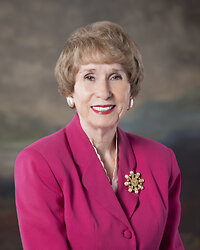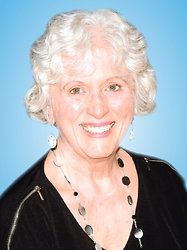The point is, we need to trust our inner voice.
Sometimes that inner voice is called 'intuition.'
If we trust it, we find it is usually right.

In the previous articles, we stated that we do not get into a committed relationship by accident. We are drawn to a pattern in which we keep trying to gain what we did not have in our earlier relationships. Also, many of us are trying to heal childhood wounds.
If we find ourselves with someone we think is the wrong partner, it doesn't mean that we have to leave that person.
We begin by looking at ourselves and how we relate. What changes can we make in the ways we relate, in our beliefs about relationships and with our expectations? The good news is that these are things we can change. If we and our partner do the work and make the changes, we can both find healing and fulfillment in our current relationship. But what about those of us who aren't currently involved in a committed relationship? In order to avoid entering into an unhealthy relationship, what are some of the things we can do?
1. PAY ATTENTION TO THAT INNER VOICE.
Many of us have said, 'There was something in me that said I should not be marrying this person, and yet, I went ahead.' Often, we have an inner voice that tells us that a person is not good for us, but we override it. We override it by saying to ourselves, 'I will change him.' This is one of the red flags: when we think we have to change or fix another person. It is like the Beauty and the Beast story.
The Beauty thinks she can change the ways of the Beast and turn him into a gentle person, but most of the time, in real life at least, the Beauty is the one who gets hurt. This idea of changing the Beast plays out by our getting into marriage and then complaining about some of the things that our partner does or does not do. The partner is upset because this is the way he or she has always been, but now it is not okay.
The point is, we need to trust our inner voice. Sometimes that inner voice is called 'intuition.' If we trust it, we find it is usually right.
2. ASK YOURSELF: 'WHAT HAVE I LEARNED ABOUT MYSELF?'
If we have been in failed relationships, we need to ask ourselves, 'What did I learn about myself? What changes do I need to make?' If we do not deal with these questions, we will find ourselves making the same mistakes over and over.
What are some of the things we might learn about ourselves? We might learn that we our love has been conditional. For instance, we demanded that our partner always be 'up' and to express only 'happy' feelings.
Negative or 'bad' feelings were not allowed. If they were expressed either by words or body language, we took it personally.
We will continue exploring ways to avoid an unhealthy relationship in next month's article.
Dr. William E. Austin is a licensed psychotherapist and holds a Doctor of Divinity degree. He is a therapist with Tidewater Pastoral Counseling Services . He is well known for his warmth and sense of humor. His book, Creating Our Safe Place - Articles on Healthy Relationships, can be purchased through www.amazon.com.
Tidewater Pastoral Counseling: 623-2700
CURRENT COLUMNS
On The Front Porch With You 
Memories of Homeby Rob LauerChildren First 
Dandelion Timeby Becky AdamsPublisher’s Point 
Time To Moveby Jean Loxley-BarnardRelationships 
When Your Security Blanket is in the Dryerby Dr. Bill Austin

